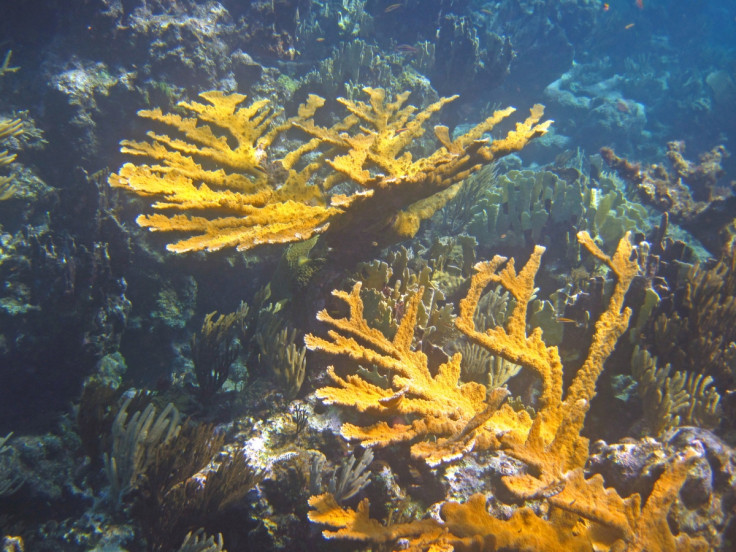Critically endangered lab-grown elkhorn coral survives four-year study in Caribbean Sea

A colony of threatened coral species from the Caribbean has been raised in a lab to sexual maturity, replanted in the ocean and has thrived for the past four years. Researchers reared the critically endangered elkhorn coral, or Acropora palmate, from gametes in 2011 before it was replanted on Caribbean reefs a year later.
Elkhorn coral has declined so quickly over such a short period of time that it was awarded 'critically endangered' status in the IUCN Red List of Threatened Species in 2008. That prompted conservation organisation SECORE International to begin collecting and rearing young elkhorn coral gametes with the aim of recolonising the ocean. Their results were published in the journal Global Ecology and Conservation.
"Our approach differs substantially from the one generally used by the large number of reef restoration groups that operate throughout the Caribbean," said Dirk Peterson, director of SECORE. "SECORE developed a technique whereby male and female gametes are caught in the wild and fertilised to raise large numbers of genetically unique corals."
The researchers began by collecting a small proportion of gametes from the ocean by placing special nets around colonies which were currently spawning. It was then a case of using in-vitro fertilisation (IVF) to make the coral embryo in the laboratory. Within a couple of days, these tiny embryos matured into small larvae, who then found their own specifically designed settlement substrates – or their 'home' – which would protect them. After a period of one year, during which the scientists essentially mothered these young polyps, they were planted in the Caribbean to live by themselves.
"In four years, these branching corals have grown to the size of a soccer ball and reproduced, simultaneously with their natural population in September 2015," said Valérie Chamberland, researcher on the study. "This event marks the first ever successful rearing of a threatened Caribbean coral species to its reproductive age."
This is not the first time researchers have tried to 'adopt' young coral gametes and replant them in the ocean. However, this is the first time it has been successful, thanks to the new technique which allows the young polyps to find their own substrate. The next step for the research is to try and carry out a larger-scale recovery project. The scientists want to carry out a replanting programme that covers more of the Curaçao, and other regions of the Caribbean.
© Copyright IBTimes 2025. All rights reserved.






















